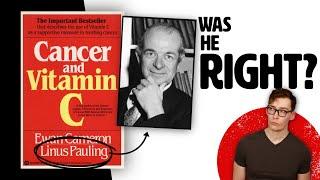Reforming medicine: uncovering blind spots, challenging the norm, and embracing innovation | Marty Makary, M.D., M.P.H.
Peter Attia
Sep 16, 2024
Mindsip insights from this episode:
Delay umbilical cord clamping to enhance newborn health
Delaying umbilical cord clamping to 90 seconds, instead of 45, provides a statistically significant clinical benefit to the newborn.
Understand C-section impact on baby's microbiome and cancer risk
Babies born via C-section have their microbiome seeded by hospital bacteria rather than the mother's vaginal bacteria, which may be linked to higher rates of colon cancer before age 50.
Remove fallopian tubes to prevent ovarian cancer risk
The most lethal type of ovarian cancer originates in the fallopian tubes, not the ovaries, meaning removing the tubes during other surgeries could be a preventative measure.
Limit childhood antibiotics to reduce disease risk
A Mayo Clinic study found antibiotic use in the first two years of life is correlated with a significant increase in obesity, learning disabilities, asthma, and a 289% increase in celiac disease.
Introduce peanuts early to reduce allergy rates
The official recommendation for children to avoid peanuts until age three caused the allergy epidemic, with early exposure now shown to reduce allergy rates eight-fold.
Consider antibiotics to treat non-ruptured appendicitis and avoid surgery
A short course of antibiotics is 67% effective for treating non-ruptured appendicitis, potentially avoiding surgery and its associated risks.
Transform medical education to foster critical thinking
Medical education forces students into rote memorization of facts like enzyme names, which they could look up, instead of teaching critical appraisal of research and how to deal with uncertainty.
More from
Peter Attia
AMA #78: Longevity interventions, exercise, diagnostic screening, and managing high apoB, hypertension, metabolic health, and more
Ketogenic diet, ketosis & hyperbaric oxygen: metabolic therapies for weight loss, cognition, Alzheimer's & more | Dom D'Agostino, Ph.D.
The evolutionary biology of testosterone: how it shapes male development and sex-based behavioral differences, | Carole Hooven, Ph.D.
The impact of gratitude, serving others, embracing mortality, and living intentionally | Walter Green (#288 rebroadcast)
Thyroid function and hypothyroidism: why current diagnosis and treatment fall short for many, and how new approaches are transforming care | Antonio Bianco, M.D., Ph.D.
You also might be interested in
Ketosis (Fasting/Ketogenic Diet) accelerates Cancer Growth - New Study
Soda & Cancer Death: The Link Found in Multiple Large Studies
Early Detection Saved Me: Maria Menounos on Becoming the CEO of Your Health
Linus Pauling: Vindicated by New Evidence?
One Fat Can Prevent Dementia — If You Eat It Long-term













